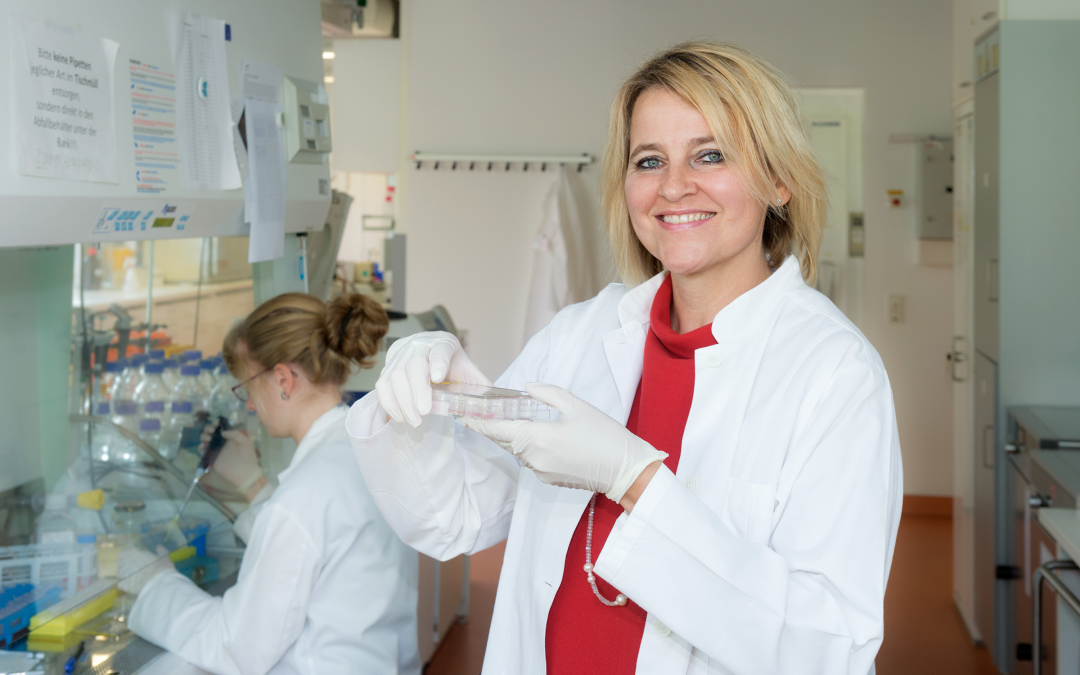Why do we age? What exactly happens in the body? And: Can something be done about it? These are questions that have occupied science since time immemorial. The pharmacists Alexandra K. Kiemer and Jessica Hoppstädter from the Saarland University have not found a philosophical stone. But: they have uncovered processes in the immune system that contribute to our ageing: Low levels of the hormone cortisol and the protein Gilz trigger chronic inflammatory processes. (Foto: © Iris Maurer)
The study “Altered glucocorticoid metabolism represents a feature of macroph-aging” by Dr. Jessica Hoppstädter and Prof. Alexandra K. Kiemer provides an insight into the role of glucocorticoid metabolism and GILZ regulation during the ageing process. The publication involved researchers from the Experimental and Clinical Pharmacology and Toxicology (Prof. Markus R. Meyer) at the Saarland University, the Pharmacology Department at the Perugia University (Italy) and the Institute for Cardiovascular Regeneration at the University Hospital Frankfurt.
Further information in the UdS Press release (07/01/20)
Warum altern wir? Was genau passiert dabei im Körper? Und: Lässt sich dagegen etwas tun? Diese Fragen beschäftigen die Wissenschaft seit Menschengedenken. Einen Stein der Weisen haben die Pharmazeutinnen Alexandra K. Kiemer und Jessica Hoppstädter von der Universität des Saarlandes zwar nicht gefunden. Aber: Sie haben Vorgänge im Immunsystem entlarvt, die mit dazu beitragen, dass wir altern: Niedrige Spiegel des Hormons Cortisol und des Proteins Gilz lösen chronische Entzündungsprozesse aus. (Foto: © Iris Maurer)
Die Studie „Altered glucocorticoid metabolism represents a feature of macroph-aging“ von Dr. Jessica Hoppstädter und Prof. Alexandra K. Kiemer gibt einen Einblick in die Rolle des Glukokortikoid-Stoffwechsels und der GILZ-Regulation während des Alterungsprozesses. An der Veröffentlichung beteiligt waren Forscherinnen und Forscher der Experimentellen und Klinischen Pharmakologie und Toxikologie (Prof. Markus R. Meyer) der Universität des Saarlandes, der Pharmakologie der Universität Perugia (Italien) und des Instituts für kardiovaskuläre Regeneration der Uniklinik Frankfurt.
Nähere Informationen in der UdS Pressemitteilung vom 1. Juli 2020

